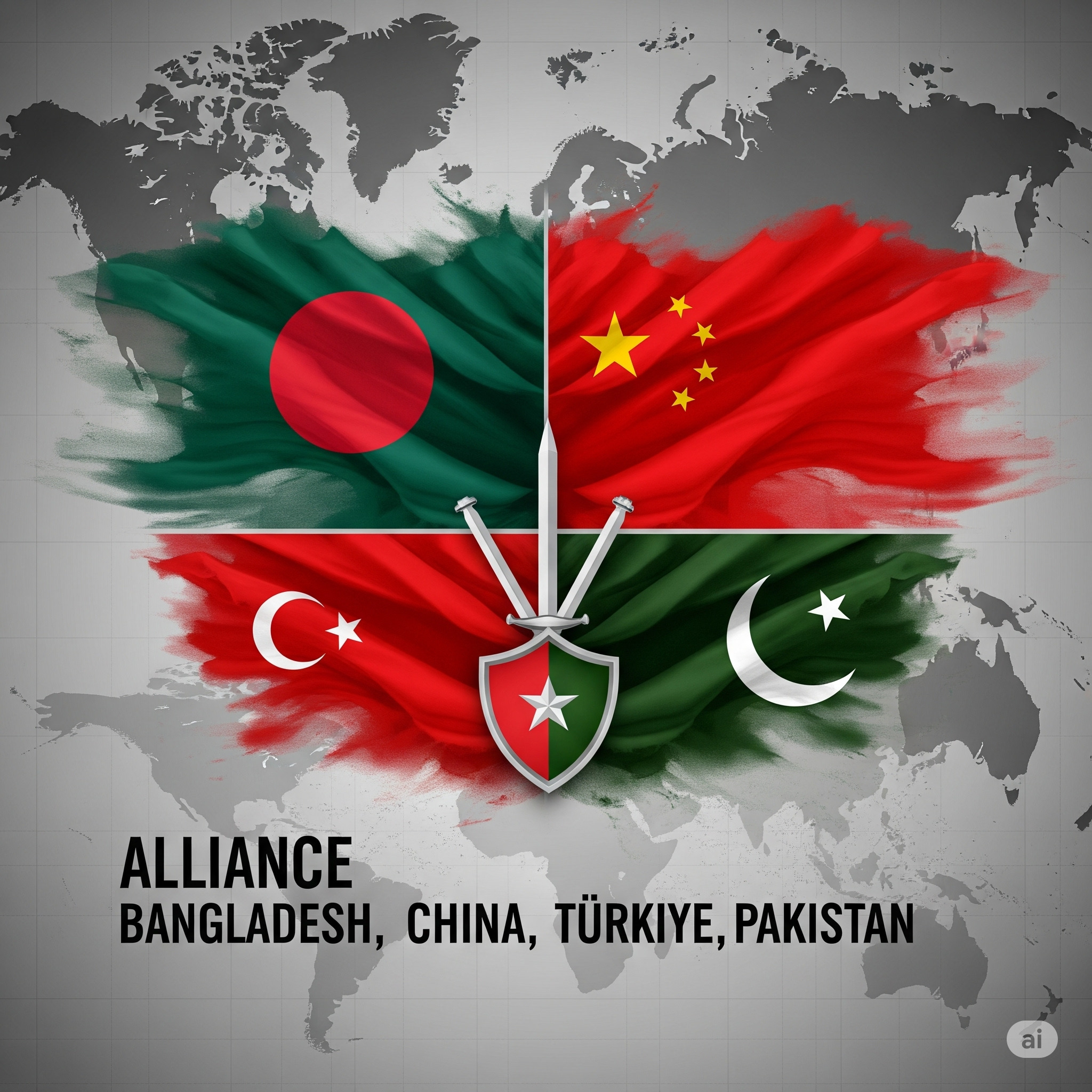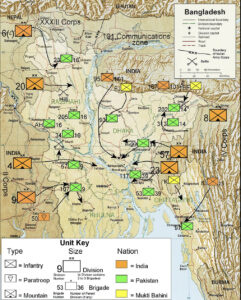This content is restricted to site members. If you are an existing user, please log in. New users may register below.
Forging Strategic Depth: The Case for a Mutual Defence Pact Between Bangladesh, Türkiye, China, and Pakistan

Reading Time: 4 minutes As global power dynamics increasingly shift towards multipolarity, Bangladesh—poised at a pivotal juncture in South Asia—must reassess its security architecture in the face of mounting strategic uncertainty. Recent hostility from India, coupled with regional instability across its eastern and western frontiers, has compelled Dhaka to consider more robust forms of strategic alignment. A compelling option now emerging on the strategic horizon is a mutual defence pact with Türkiye, China, and Pakistan—a quadrilateral security and economic bloc that could offer Dhaka greater autonomy, deterrence, and resilience in an increasingly perilous neighbourhood. This proposed pact being discussed by defence officials, encompassing mutual defence guarantees, military-industrial cooperation, and a long-term ambition for nuclear deterrence through a strategic umbrella, may appear audacious to some. Yet, upon closer inspection, it is both a feasible and rational undertaking that aligns with Bangladesh’s long-term national interests. A Strategic Imperative Born of Necessity India’s

